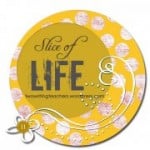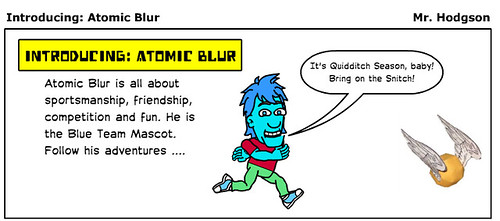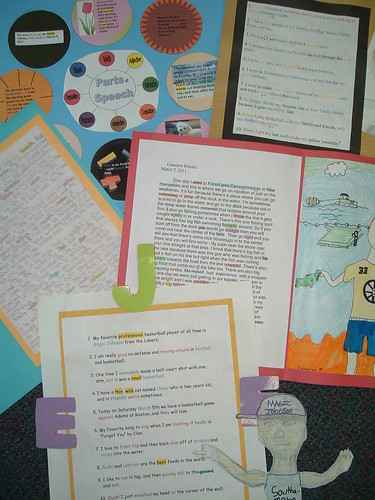The National Writing Project has lost its federal support. Money to support the NWP, of which I am an active and vocal member and advocate, was on the chopping block during recent budget cuts. (See NWP Executive Director Sharon Washington’s response). It’s still too soon to say what the direct impact will be of losing that support, and what our local organizations (like my Western Massachusetts Writing Project) will look like in the near future. It’s been difficult to even digest the news, to be honest.
But we won’t go quietly.
Today and into this weekend, many of us with online voices are joining together for a Blog4NWP event (spearheaded by Chad Sansing, of Virginia) in which are using our spaces to lobby our representatives and our friends to push for reconsideration of the NWP’s importance in supporting teachers and their students.
As Chad writes:
On March 2nd, 2001, President Obama signed a spending bill to keep the federal government operating during budget season. The bill cut federal funding to the NWP as part of a Congressional effort to eliminate earmarks – federal funds legislated to support certain programs like the NWP. While pork-barrel projects are, perhaps, easy political targets for elected officials looking to make names for themselves as no-nonsense fiscal conservatives, the NWP is not a pork-barrel project and it makes no sense to eliminate funding to the NWP, a program with a proven track record in raising student achievement that provides teachers and students with authentic opportunities for communication, inquiry, and problem-solving – opportunities to practice those deservedly ballyhooed skills our students need to be college-, community-, and life-ready.
Here, I’ve tried to come up with a list of Reasons To Support NWP:
- It’s Effective. No other professional development organization that I have come across has been more powerful than the model that is at the heart of the National Writing Project: teachers teaching teachers. The experts in the network are teachers themselves, sharing their best practices and pushing each other to continually move forward with instructional ideas and innovations. The organization began with a small group of teachers in Berkeley, talking about writing, to become something larger. But it’s heart is the same: What I know, I pass on to you, and what you know, you pass on to me, and what we both don’t know, we learn together.
- It’s Far-Reaching. Whether it’s how to help rural teachers and their students in isolated areas, or urban teachers and their students in city centers, or considering how writing is changing in this Digital Age with multi-modal composition, or working to celebrate and support English Language Learners, or considering the possibilities of curriculum change like the Common Core or simply creating networks of teachers who come together to write as writers on regular basis, the National Writing Project is woven into the threads of the educational tapestry. It is about the major trends facing education and it is always moving in a direction that signals thoughtful, reflective work.
- It’s About Students. Whenever I am in a room with NWP folks, the talk almost always turns to our students. It seems to be a common lens — this question of, how will this help MY students? You may think, well, of course. You’re teachers. But I have also been in lots of rooms with non-NWP teachers at non-NWP events, and the tone and tenor of the conversations are often different than at NWP spaces. The role of the student is never more front and center than it is when NWP teachers are talking about the struggles and successes of a young writer.
- It’s About the Doing. The hallmark of a dull professional development session is the talking head at the front of the packed hall, disconnected from the folks there. I’ve been in that hall, all too often. Take a look at the audience, and they are most likely trying to check their cell phone or mobile device. In NWP sessions, the participants are almost engaged in activities, inquiries and construction of shared knowledge. The hands-on work of teachers actually and actively writing, sharing, reflecting, or constructing something new, or some twist on the old, is built into the foundational philosophy of NWP’s mission. You should always expect to be writing when you come into a NWP-led session.
- It’s about Leadership Opportunities. One of the things I have always marveled at with the larger NWP network is how acute folks are at identifying leadership in its teacher cadre, and then, bestowing responsibility on them. I am quite certain that the NWP teachers who take on projects and other initiatives are also teachers who are doing the same in their own schools, now that they understand how to tap into that passion for change and learning. Leadership in NWP is not necessarily a title that you wear on your shirt. Leadership in the NWP means seeing a direction ahead, getting resources to support your vision and then finding similar-minded folks to come along with you.
- It’s About Connections. I can’t even begin to name the incredibly talented folks whom I have worked with over the years on NWP endeavors. Bonnie, in Hudson Valley, and I are partners in many projects. I am forever indebted to thinking partners like Troy Hicks, Paul Oh, Christina Cantrill, Andrea Zellner, Bud Hunt and many others. I’d be hard-pressed to find a more willing audience for feedback and even more hard-pressed to find folks who are willing to share themselves and their work so often. The NWP is my professional network. It is not the only one, but it is the most powerful. And in the end, I think it my students who benefit from the influence of my NWP friends. I’d like to think, too, that I am not alone in this sentiment.
I could go on, but I’ll stop there.
I’ll leave you with information from Chad about Blog4NWP Day. He asks that we, “Please support the NWP by sharing your experiences with the project, its institutes, its teacher consultants, and the resources it freely provides for all teachers. As you post, send the links to Chad via Twitter (@chadsansing, by @ or DM), or email your link to him. He will collect and publish the links at his blog: http://coopcatalyst.wordpress.com/. If you tweet about NWP, please include @EdPressSec, @Ed_Outreach, @nwpsiteleaders, and @whitehouse in your tweet. Let’s use the hashtag #blog4NWP. If you post before or after this weekend’s window, please let me know and/or use the hashtag to make sure I pick up your article for inclusion on the #blog4NWP archive post. Please also consider sending your writing as an email to your local and state representatives in federal government.
Peace (in the NWP),
Kevin
PS — Here is an ongoing collection of posts during the #Blog4NWP effort (Chad is keeping the full list at his blog):
#blog4nwp Posts
Kate Willaredt – save the NWP
Mary Tedrow – Mourning in America
Joseph Kahne – Congress Decides Literacy is a Bridge to Nowhere
Delaine Zody – Do you teach writing?
Susan R. Adams – How a Teacher Becomes a Writer
Leslie Morton – I started thinking numbers…
Ellen Shelton – Why the National Writing Project Matters
Jeromy Winter – #blog4nwp
Kristin H. Turner – The Best Gift I Gave Myself – NWP
Bryan Crandall – In Support of the National Writing Project
Pam Moran – I Write for Savannah
Chad Sansing – A student voice in games-based learning
Britton Gildersleeve – #blog4nwp
Paul Oh – Writing is Thinking
Lisa @teachingfriends – Why We Need to Save the National Writing Project
Chad Sansing – To President Obama
Kathee Godfree – The Value of the National Writing Project



